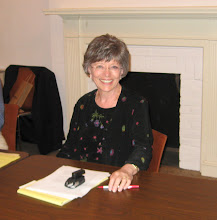The Katyn Forest murders happened over fifty years ago and it is the anniversary of that brutal event. Several Polish groups are having discussions about Waja’s movie Katyn and about the books written about the topic over the years. It is still as moving, infuriating and shocking as the first time that I read about it. It is the story of 15,000 Polish army officers who were sent to concentration camps by the Soviet Russians in 1939 when they invaded the eastern half of Poland to 'help' fight the Nazis. It tells how the Soviets used the Nazi invasion as an excuse to invade and control Poland and to disband and arrest its army and send them to forced labor camps throughout the USSR. When the Nazis turned on the USSR and they began to retreat back into the Soviet heartland they evacuated many of the camps and sent the prisoners north. But in a number of cases the prisoners were slaughtered, either in the camps or elsewhere, including many of the Polish soldiers who had been arrested for simply defending their country.
Once the USSR switched sides following the Nazi invasion into Soviet held areas, the Polish government started trying to locate their missing men and so began over a year and half of lies and deceit by some within the USSR. It wasn't until the Nazis took over the area of Katyn Forest that the graves in which the soldiers had been buried were found and excavated and the truth began to come to light. However, even after this and the huge body of evidence showing that the bodies were some of those missing and that they had obviously been slaughtered en masse in the spring of 1940, the USSR continued to deny involvement and blame the Nazis. Even during the Nuremburg Trials where this case was heard it wasn't resolved. It wasn't until 1990 that the Russian authorities finally admitted that the massacre was committed by the Russian Secret Police (the NKVD) and that the locations of the remaining Polish soldiers murdered at the time came to light (at Mednoye and Piatykhatky)
There were two things that really surprised and angered me when reading various history books about this topic. The first is the even though it was obvious that the Nazis hadn't committed this crime (for a change) and that it could only have been committed by the USSR the Allied Governments did not push for justice as they should have done. Many have put this down to the fact that it was war time and the USSR was an important ally and they wanted to avoid the possibility of an alliance between Germany and the USSR, which is understandable. But when the war had been won, I don't understand why the Allies didn't push for a full independent inquiry and bring a proper full balanced case against the USSR during the Nuremburg Trials. In the end it was the USSR themselves that tried the case, how this was allowed is beyond me.
The second is that during the war, requests were put into the International Red Cross by both the Polish and German governments for them to conduct a full independent and unbiased investigation into what happened. It should be noted that it was actually the German government who requested one first. However these requests were denied on the basis that the USSR didn't want an investigation despite the fact that the two requests would normally be enough to start an investigation. This decision resulted in the Nazis trying to conduct an independent investigation in full view of many different people as possible, but this would never be accepted by the USSR. This attitude from the International Red Cross greatly surprised angered and sickened me as they are built on the promise of independent unbiased justice in situations such as these and yet they failed those soldiers at Katyn, Mednoye and Piatykhatky. Had they got involved how different would things have been? How much sooner would the families of those killed known what had happened?
Whether you read the history books, or you watch Andrzej Wajda’s award winning movie, this is a very emotive, moving and infuriating tale that shows how the might of the former USSR controlled and influenced many decisions and actions (or the lack thereof) during and after the Second World War. I find it incredibly sad that it was the Nazis who brought this massacre to light and worked with the Polish government to try and get it investigated and the guilty brought to justice, even if it was for their own propaganda.
This may be a harsh assessment about what happened post WW II and how Roosevelt sold Eastern Europe to the Soviets. Perhaps reading the new book on what happened at Yalta will soften my opinion to some degree. I have just reserved Plokhy’s Yalta: The Price of Peace in which he gives a blow by blow account of what happened. Here is the WSJ review: http://online.wsj.com/article/SB10001424052748704259304575043561664524730.html
Saturday, February 6, 2010
Subscribe to:
Post Comments (Atom)

No comments:
Post a Comment